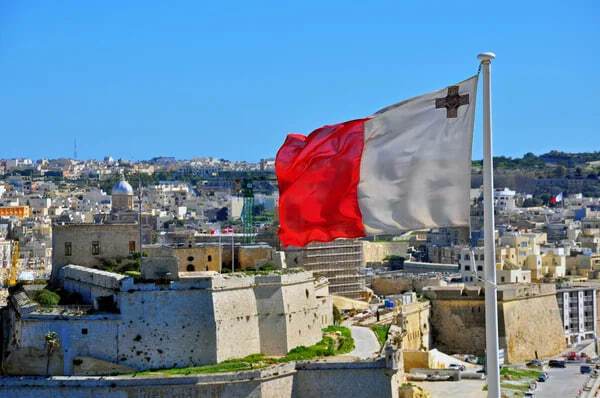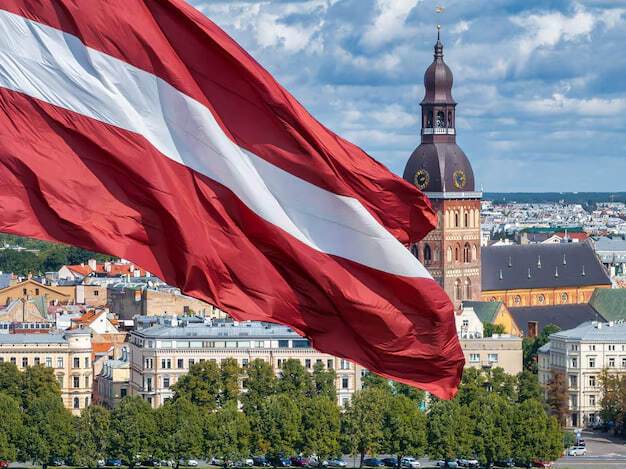What benefits do investors gain, and what are the requirements for applicants seeking EU citizenship or residency?
In this article, we will explore the options available in 2024 and help you choose the optimal strategy to achieve your goals.
Malta, Cyprus, Latvia, Greece, and Spain offer residency and citizenship programs through investment, which grant investors access to Europe by contributing to the economies of these countries. Each program has unique conditions aimed at boosting economic growth while providing advantages for investors.
One of the simplest ways to obtain EU residency and citizenship is through real estate investment. This path provides predictable timelines and guarantees of status acquisition, making it an attractive option for many investors. In this article, we will take a detailed look at European residency and citizenship programs through real estate investment, analyzing their features, requirements, and benefits.
Which European countries offer residency through real estate investment?
Cyprus
Cyprus is known for its excellent wines, mineral resources, and affordable cost of living. It also offers one of the simplest residency-by-investment programs. With no restrictions on the length of stay, the Cypriot government grants non-EU citizens and their families the opportunity to obtain permanent residency. To qualify, you need to purchase residential or commercial real estate worth at least €300,000. The Cyprus residency card is issued within 6 to 9 months after the application is submitted and remains valid for life, provided that the investor and their family members visit the country at least once every two years.
Greece
Greece offers one of the most attractive Golden Visa programs for investors seeking residency in Europe. By investing in real estate starting from €250,000, the investor, their spouse, and children can obtain a five-year residency permit. The Golden Visa program in Greece stands out due to its low investment threshold compared to other European countries, making it relatively accessible.
Greece does not impose language requirements or mandatory residency, allowing the inclusion of immediate family members in the application. Within three months, the primary applicant and their family will receive their residency permits, which provide visa-free access to the Schengen Area.
Investment opportunities in Greece are diverse. In addition to purchasing real estate for €250,000 with a mandatory five-year ownership period, other options include a five-year lease of a hotel room, a ten-year lease of a tourist complex, purchasing land for agriculture or construction, and investing in shares of tourist properties. Regardless of the chosen option, the properties can be rented out while maintaining ownership for five years.
The residency permit in Greece is valid for five years and can be renewed for an additional five years. After seven years of living in the country, the investor may apply for citizenship. Greek citizenship, as a member of the EU, grants access to Schengen countries and the European Union, along with high-quality healthcare and educational services.
Spain
The land of siestas and paella offers a Golden Visa program, launched in September 2013. This residency-by-investment program allows investors and entrepreneurs to gain the right to live, study, and work in Spain, provided they invest at least €500,000 in real estate. The investor can purchase either a single property or multiple properties, as long as the total investment meets the required amount.
The program also grants Golden Visa holders the ability to travel freely within EU countries, access to high-quality healthcare services, and prestigious international schools. In return, these investments help support the Spanish economy.
To renew the residency permit, which is done every two years, the investor must maintain their real estate investments. After five years of continuous residence, it is possible to obtain permanent residency status, and after ten years, under certain conditions, citizenship.
Malta
Located in the heart of the Mediterranean, Malta boasts a strategic position, stable political situation, and excellent climate, making it one of the best places for investment in Europe. The island offers permanent residency through the Permanent Residence Program (MPRP) for investors seeking residence in the EU. To participate in the program, it is necessary to purchase real estate valued at a minimum of €300,000 or rent a property for at least €10,000 per year, along with mandatory contributions: €28,000 to the government fund, a €40,000 administrative fee, and €2,000 to a charitable fund.
Additionally, there is the Malta Global Residence Program, which allows investment in real estate in Gozo or Southern Malta with a minimum threshold of €220,000, requiring a €5,500 administrative fee and an income tax of at least €15,000 per year transferred to Malta. Alternatively, renting property is possible for €9,600 per year (or €8,750 in Gozo or Southern Malta).
Application processing takes about four to six months. Investors can include their spouses, children, parents, and grandparents in their application. After obtaining residency, the applicant and their family have the right to reside in Malta and travel freely throughout the Schengen Area without a visa.
Latvia
The Latvian Golden Visa program attracts investors with its accessibility and appealing conditions. By investing a minimum of €250,000 in real estate, foreign investors gain the opportunity to acquire property in this picturesque country on the Baltic Sea and obtain residency.
This program does not impose language requirements or prior residency in the country, and the application processing time ranges from one to three months, making it one of the fastest Golden Visa programs in the EU. The primary applicant can include family members, such as a spouse and minor children, in their application.
One of the key benefits of the Latvian Golden Visa is visa-free access to Schengen countries. If the applicant decides to extend their residency and spend more time in the country, they may be eligible for permanent residency after five years, provided they have resided in Latvia for four years.
Citizenship through Real Estate Investment in Europe
Among the offerings for citizenship and passports through real estate investment, citizenship in the European Union is particularly attractive due to the freedom of movement, high living standards, and access to developed markets. In this section, we will explore a program that provides investors with the opportunity to become EU citizens through investment.
Citizenship through Investment in Malta
Malta offers two attractive options for those looking to obtain citizenship through investment: renting or purchasing real estate. Each option comes with its own mandatory requirements and contributions, making the Maltese program one of the most organized and accessible in Europe.
Renting Real Estate
For those who prefer to rent, there are three key requirements:
- Contribution to the National Development Fund — at least €600,000.
- Charitable contribution to a local NGO — €10,000.
- Rental of property worth at least €16,000 per year for a period of one to three years.
Initially, the investor submits an application for a residency permit (RP). Within 12 months from the date of issuance of the residency card, they can apply for citizenship. To do so, the investor must maintain a rental agreement for a property worth €16,000 per year, rented for a minimum of five years.
Purchasing Real Estate
If the investor prefers to purchase property, the conditions are as follows:
- Contribution to the National Development Fund — from €600,000.
- Charitable contribution of €10,000.
- Purchase of property worth at least €700,000.
Maltese citizenship opens up extensive opportunities for international travel — passport holders can travel visa-free to 185 countries worldwide. This option is ideal for those seeking global mobility and looking to expand their business opportunities. The rigorous due diligence process in Malta ensures a high level of approved applicants, and the absence of restrictions on dual citizenship makes the program even more appealing.
Citizenship through Investment: The Turkish Option
Although Turkey is not yet a member of the European Union, it launched its citizenship-by-investment program in 2017, attracting significant interest from foreign investors. By investing just $400,000 in real estate, applicants, along with their spouses and children, can obtain Turkish citizenship and a Turkish passport.
Since the program's introduction, Turkey has seen a high level of naturalization, making it one of the most popular options in the world. The process for obtaining citizenship through investment is relatively straightforward and takes between six to nine months, provided that the property is held by the investor for a minimum of three years.
A Turkish passport grants access to visa-free travel to 139 countries, including destinations like Japan and Singapore. Additionally, Turkish passport holders can take advantage of the E2 investor visa option for the United States and the United Kingdom, significantly enhancing their opportunities for international business and travel.
Benefits of Residency Programs in the EU Through Investment
Freedom of Movement
European residency programs through investment offer significant advantages, primarily freedom of movement. Despite technological advancements, borders remain a barrier to travel, and obtaining visas can be complex. However, residency through investment provides the opportunity for unrestricted movement. All programs facilitate visa-free access to numerous countries, eliminating lengthy visa processes. For instance, the Greek residency allows travel throughout the Schengen Zone, comprising 29 European countries. For citizens from countries with less powerful passports, such as Iraq and India, European residency greatly expands travel opportunities, saving time and avoiding visa hassles.
Business Opportunities
The freedom of movement opens up new business opportunities. Investors can easily attend conferences in Brussels, participate in international projects, and explore new markets, contributing to increased revenue. For example, establishing a business in Portugal allows investors to take advantage of its stable economy and entrepreneurial environment.
Tax Optimization
Another advantage of residency through investment is tax optimization. Investors seek to improve their tax management, and many European countries offer favorable tax conditions. For residents of high-tax countries, obtaining citizenship in countries with more lenient tax regimes, such as Ireland or Grenada, provides greater financial freedom. Grenada, with its citizenship-by-investment program, is particularly advantageous as it allows applicants to apply for the E2 visa, enabling them to live in the U.S. with a Grenadian passport.
Return on Investment
Investing in real estate in Europe allows for asset diversification and the potential for additional income. A successful real estate transaction not only enhances an investor’s portfolio but also generates stable income, making such investments appealing.
Quality of Life Benefits
Family factors play a crucial role in Golden Visa programs, allowing applicants to include family members and provide them with the same benefits. Children can attend leading educational institutions in the EU and receive higher education without the need for external consultants. Residency through investment ensures access to quality healthcare systems. Malta and Greece stand out for their high levels of medical care, guaranteeing necessary resources for the entire family.
Moreover, European residency programs provide protection against political instability, which is particularly relevant for investors from countries with complex geopolitical situations. European residency serves as a reliable backup plan, and many countries offer pathways to citizenship for those who reside on their territory for an extended period.
Cryptocurrency Trading
Today, cryptocurrencies play a pivotal role in the business economy, and investors are actively seeking countries with favorable conditions for their use. Following China's ban on Bitcoin mining, cryptocurrency transaction volumes in the EU have surged, positioning Europe as one of the leading economies in the cryptocurrency sector.
How to Choose a Country for Residency Through Investment
Choosing a residency program through investment in Europe can be complex due to the multitude of options, each with unique conditions and benefits. While most programs have standard requirements—such as a clean criminal record, proof of legitimate income sources, and investment in real estate—they can vary significantly in cost, processing times for residency, and conditions for family members.
Cultural and Geographical Factors
Cultural and geographical factors play a significant role in the decision-making process. For instance, investors from the Middle East may find Malta appealing due to its language, proximity to the region, and cultural similarities. Additionally, Malta is known for its high quality of life, which can be an attractive factor.
Cost and Conditions
Cost and conditions are key considerations when selecting a program. The most affordable programs include Latvia and Greece, starting from €250,000. These options are attractive for those seeking minimal investments while gaining the ability to live in the EU and travel visa-free within the Schengen Zone.
Tax Advantages
It’s also important to consider tax benefits. Countries with favorable tax policies, such as Cyprus, may offer incentives for individuals looking to optimize their tax obligations. Understanding the tax implications of residency can greatly influence the decision.
Family Considerations
Family factors are crucial in the selection process. Most programs allow the inclusion of spouses and children in the application, providing access to quality education and healthcare services. European countries boast some of the best healthcare systems in the world, which can be an important factor for families.
Defining Priorities
Ultimately, when choosing a program, it’s essential to define your priorities: whether you seek minimal costs, tax advantages, access to the Schengen Zone, or the possibility of quick citizenship. Each program has its unique advantages, and carefully considering these factors will help ensure you make the right choice that meets your needs.
Comparative Table of Temporary/Permanent Residency and Citizenship Programs in Europe through Investments
| Greece (Residence Permit) | Spain (Residence Permit) | Cyprus (Permanent Residence) | Latvia (Residence Permit) | Malta (Citizenship) | Turkey (Citizenship) | |
|---|---|---|---|---|---|---|
Processing Time | From 2 to 6 months | From 3 months | From 6 to 9 months | From 1 month | From 12 months | From 6 to 9 months |
Investment Amount in Real Estate | From €250,000 | From €500,000 | From €300,000 | From €250,000 | From €16,000 + mandatory contribution of €610,000 | From $400,000 |
Return on Investment | Investment must be maintained to retain status | Investment must be maintained to retain status | Investment must be maintained to retain status | Investment must be maintained to retain status | 5 years (only for the amount invested in real estate) | After 3 years |
Residence Requirements in the Country | No | No | No | No | No | No |
Document Renewal Period | 5 years | 5 years | Indefinite | 5 years | 5 years | 10 years |
Requirements for Citizenship | Live in the country for 7 years with a residence permit | Live in the country for 10 years with a residence permit | 7 years of residency | Live in the country for 5 years with Permanent Residence | - | - |
Family Inclusion after Obtaining Residence Permit/Permanent Residence | + | + | + | + | + | + |
Visa-Free Entry (if citizenship is obtained) | 186 countries, including the USA, Canada, Australia, Schengen Area | 194 countries, including the USA, Canada, Australia, Schengen Area | 170 countries, including the USA, Canada, Australia, Schengen Area | 185 countries, including the Schengen Area | 187 countries, including the Schengen Area, USA, Canada, UK, Australia | 110 countries, including the Schengen Area |
















